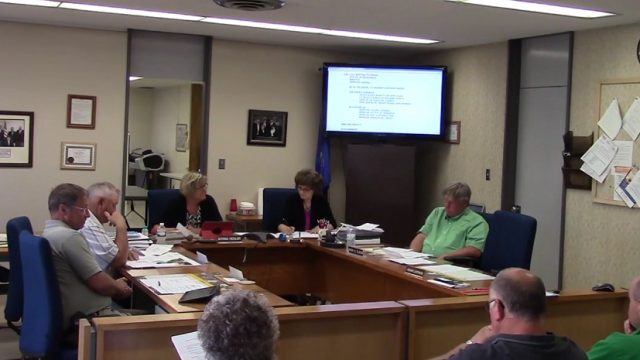North Dakota’s Local Governments Shouldn’t Be Allowed to Ban Public Input at Open Meetings

North Dakota’s open records and open meetings laws are very, very good. But one loophole in them is that, while they require that almost all public meetings be open to the public, there is no legal requirement for public involvement in those meetings.
That loophole has begun to manifest itself in some troubling ways. One example I wrote about is a story from Valley City I wrote back in November about a man banned from speaking to the local city commission because of what city leaders thought he might have said.
Now, in Devils Lake, the Ramsey County Commission has abolished the public input sections of their meetings because, apparently, the commissioners were tired of hearing from the public:
DEVILS LAKE—Residents who wanted to ask questions or air grievances to the Ramsey County Commission won’t be able to comment at public meetings anymore after the board chairwoman removed the item from the agenda, citing the comments as “disruptive.”
The visitors and delegations portion of the meeting, which has been on the agenda for years, allowed residents up to five minutes to address the commission toward the end of the meeting. But the item was removed from the June 7 agenda and hasn’t reappeared.
Chairwoman Myrna Heisler said she had removed the item after discussing the matter with State’s Attorney Lonnie Olson, who was unavailable for comment.
“Visitors and delegations are no where in the legal description of a meeting,” she said during the meeting, referring to North Dakota Century Code. “I’m not sure when it was started with Ramsey County, but it has become so disruptive that I, as chair(woman), chose to take it off the agenda at this time. When the next chairman goes on board, they are more than welcome to revisit it.”
If you click through to the article you can read about what prompted the Ramsey County Commission to ban public input. Apparently commissioners got some heat from a member of the public upset about inmate treatment at the local jail. The behavior of the critic was also disruptive to the meeting.
Let me be clear that I don’t think any member of the public has the right to be disruptive at a public meeting. But I do think local leaders should be legally required to afford the public some regular opportunity to provide feedback.
Many of our state’s various governing entities do allow for this, from the Legislature where testimony on every bill being considered is open to the public down to city councils. But right now it’s optional, and it’s a bit too easy for local leaders to brand what might be perfectly legitimate criticism as “disruptive.”
It would be easy for state lawmakers to pass a law requiring the regular inclusion of public comment. Not necessarily at every meeting, but certainly at regular intervals. The law could also stipulate that speakers be afforded some minimum amount of time – say, five minutes? – but also a maximum amount of time for public comment so that every meeting doesn’t turn into a marathon of speechifying cranks. Also, the law could include criteria for the exclusion of protests or public comment that truly meets the definition of disruptive.
I get why some local leaders are frustrated. Dealing with the public can be a headache. Not everyone chooses to express their criticism in an appropriate fashion. After nearly 13 years of running a popular online political forum, I know a thing or two about this.
That said, if you don’t want to deal with the public, you shouldn’t be in public service.




